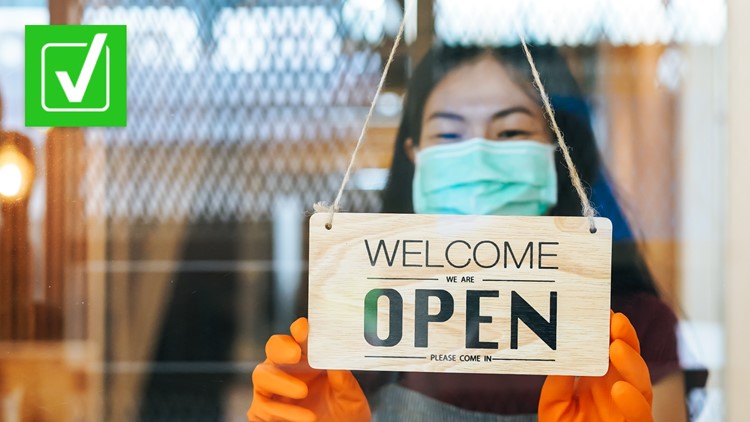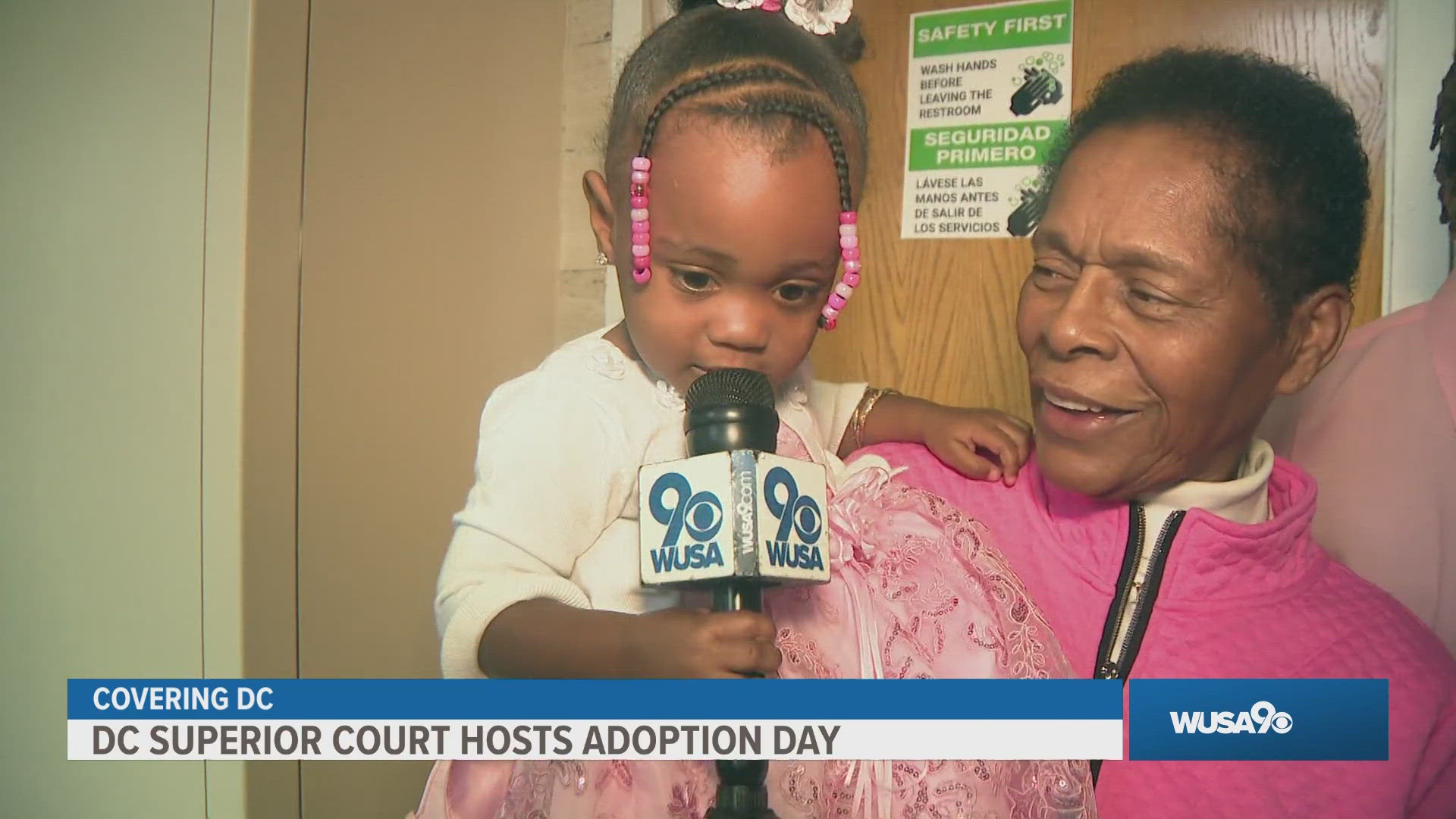It’s been a week since the Centers for Disease Control and Prevention (CDC) updated its mask guidance on May 13, saying people fully vaccinated against COVID-19 don’t need to wear masks in any setting unless it’s required by federal, state or local law. Since the CDC announced its updated guidance, states and businesses have been adjusting their mask mandates.
As those changes go into effect, many people have had questions about how the guidance may apply in certain situations.
THE QUESTION
VERIFY viewer Nathan asked: Can businesses require customers who are unvaccinated to wear a mask even if there is no federal, state or local mandate to wear a mask in that setting?
THE SOURCES
- Carrie Hoffman, partner at Foley and Lardner LLP.
- Margaret Foster Riley, professor of law at University of Virginia School of Law.
- Glenn Cohen, professor at Harvard Law School.
THE ANSWER
Yes, businesses can require customers who are unvaccinated to wear a mask, even if there are no mandates.
WHAT WE FOUND
While the updated mask guidance from the CDC says people who are fully vaccinated don’t need to wear masks in most settings, the guidance still calls for people who aren’t fully vaccinated to continue wearing masks and physically distancing in many situations. People are considered fully vaccinated, according to the CDC, two weeks after receiving their second dose of the Pfizer or Moderna COVID-19 vaccines or two weeks after receiving the Johnson & Johnson vaccine.
But businesses can still require all customers, both unvaccinated and fully vaccinated, to wear masks.
Margaret Foster Riley, a health law expert at the University of Virginia School of Law, said businesses can undertake precautions to protect employees and customers, as long as those precautions aren’t discriminatory.
“In effect, there’s a quid pro quo—if they want to come into the business, they must adhere to the business’s requirements to keep everyone there safe—and someone who is not vaccinated will pose fewer risks to the other people if they then instead wear a mask, “ Riley said.
Carrie Hoffman, a partner at Foley & Lardner LLP who specializes in labor and employment law, said businesses can require customers who are unvaccinated and vaccinated to wear masks regardless of if there’s a mandate. She said there are a couple of approaches businesses can take.
“Realistically, they will need to either (1) have some way to verify that customers are vaccinated or (2) require all customers to wear masks,” Hoffman told VERIFY via email.
Hoffman and Riley said a rule requiring customers who aren’t vaccinated to wear masks may be difficult to enforce.
“The harder aspect in all of this is what kind of proof can be required,” Riley said. “A business could demand proof—but not everyone carries that proof with them.”
Most businesses can ask customers about their vaccination status without violating the Health Insurance Portability and Accountability Act, more commonly known as HIPAA.
Glenn Cohen, a professor at Harvard Law School, said state laws, which vary, can also play a role in whether a private entity can ask about vaccination status.
Riley and Hoffman said businesses can also choose to go by the honor system and trust people are following the guidance that corresponds with their vaccination status or just require all customers to wear masks.
Hoffman said in addition to state laws, businesses need to consider the Americans with Disabilities Act (ADA) when enforcing mask rules.
“A customer with a disability that prohibits wearing a mask would be something that could permit an exemption,” Hoffman explained. “Businesses open to the public must provide accommodations to individuals with disabilities. That does not have to be an exemption from a mask mandate – they could use a face shield or provide curbside pickup.”
More from VERIFY: No, most businesses won’t violate HIPAA by asking customers if they’ve been vaccinated
VERIFY
Our journalists work to separate fact from fiction so that you can understand what is true and false online. Please consider subscribing to our daily newsletter, text alerts and our YouTube channel. You can also follow us on Snapchat, Twitter, Instagram or Facebook.



